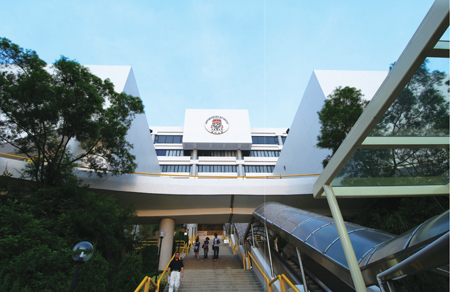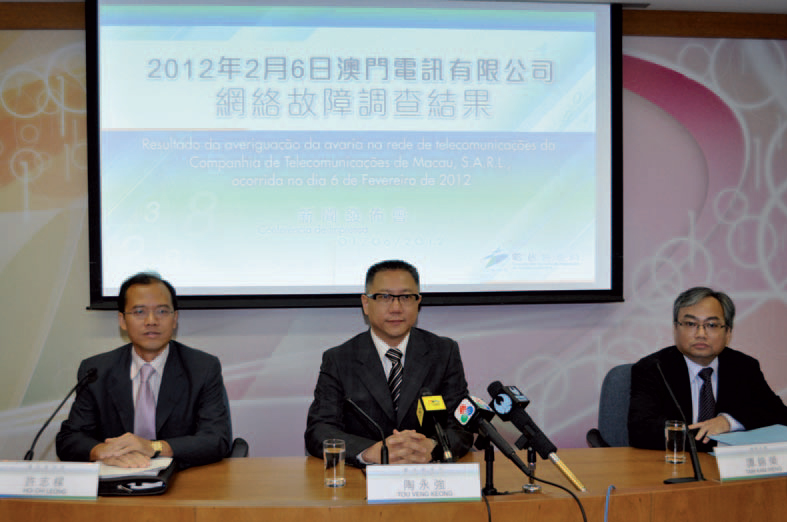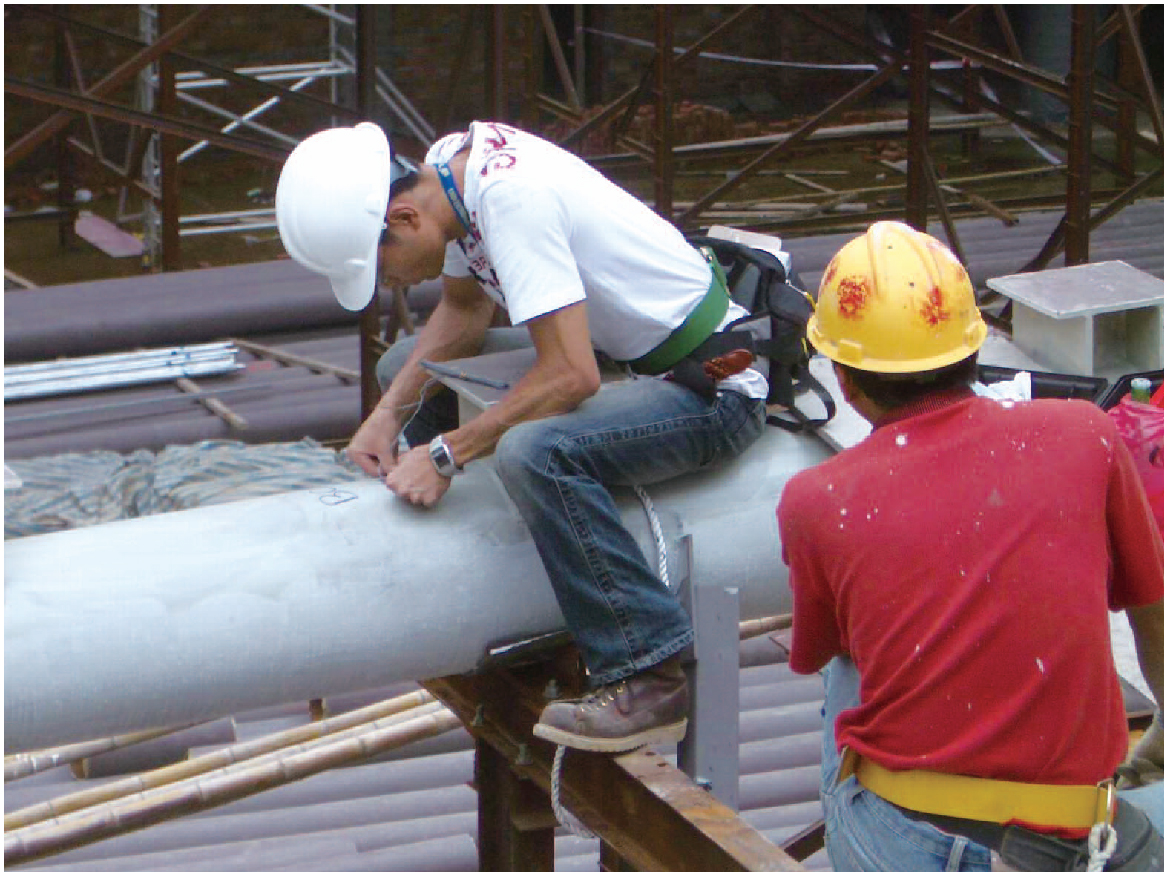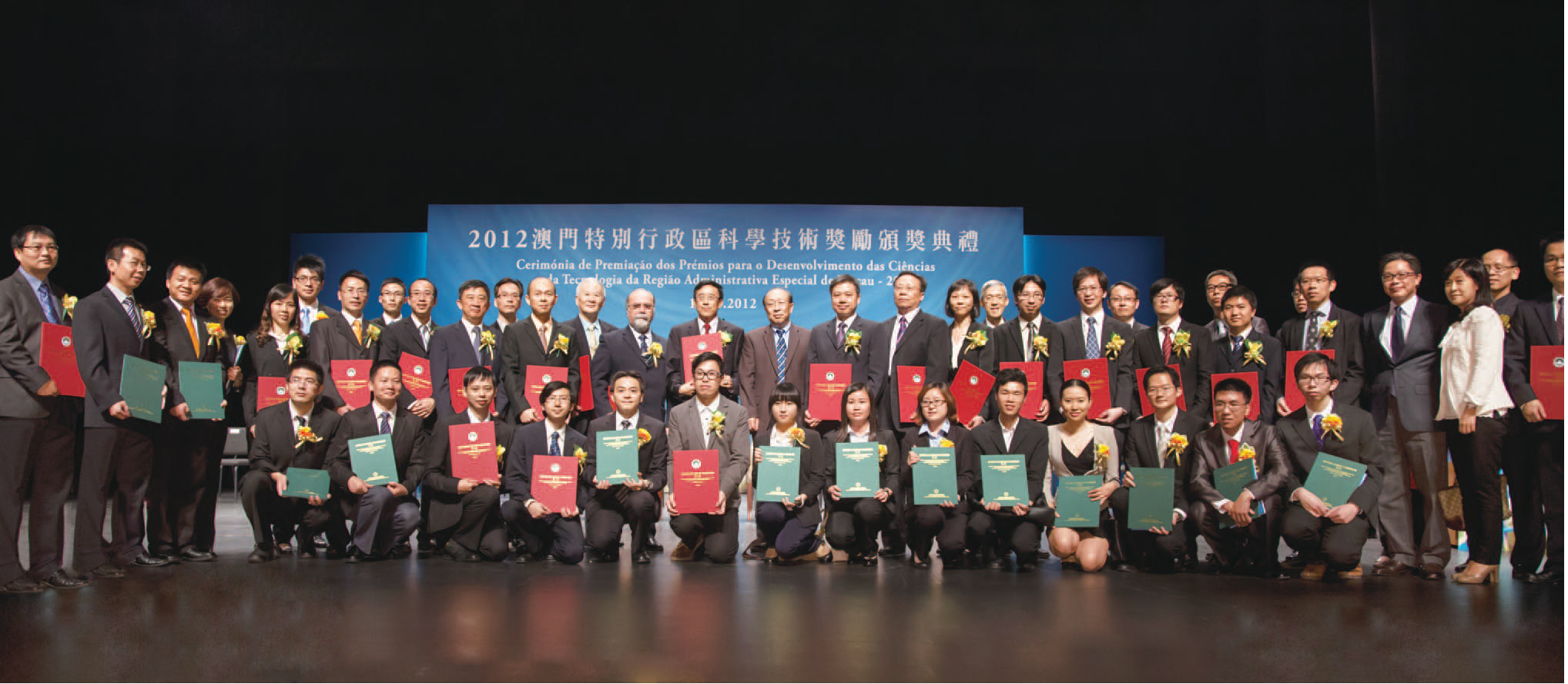As the largest comprehensive public university in Macao, the University of Macau (UM) is duty bound to fulfill its social responsibility to contribute to the development of Macao, in addition to producing outstanding graduates.
Further the Development of Society
All along, UM has actively provided academic and technological support to government departments, public organisations, and private associations, hoping to serve the local community with its expertise. Prof. Tam Kam Weng from UM’s Faculty of Science and Technology (FST) was commissioned by the Bureau of Telecommunications Regulation of Macao SAR earlier to investigate CTM’s major mobile and internet service failure. “Given the widespread effect of the incident, the bureau requested us to investigate and write an analysis report,” recalls Prof. Tam. “In addition to field inspection, we also held several meetings with CTM personnel. The process was not easy, but I was gratified that my expertise was recognised and I had the chance to do something for the community.” Prof. Tam says that many research projects conducted by the laboratory seek to answer the needs of the local community. He cites the examples of the Radio Frequency Identification technology (RFID), whose innovative applications have led to improved public facilities and service, such as automated management of the library, intelligent postal service, etc., as well as the Wireless UV Sensor, which is still in the R&D stage and which is mainly for fire prevention for world heritage sites in Macao.
Another example that shows UM’s active participation in social affairs and public recognition of its expertise is the earlier Sin Fong Garden incident arising from the building’s damaged main support column. After the incident, UM’s Centre for Engineering Research and Testing (CERT) was commissioned by the government to monitor the structure of the building, with technical support of FST. In order to understand the behaviour of the structural members of the building and to provide updated monitoring data to the Macao SAR government, CERT and FST reinforced the damaged column and installed several instruments on the temporary facilities and the adjacent columns through a real-time monitoring system.
Earlier this year UM and the Macau Tung Sin Tong Charitable Society (Tung Sin Tong) co-organised a seminar in celebration of the 120th anniversary of Tung Sin Tong, representing a successful attempt on the part of UM to promote philanthropy in Macao and China through academic collaboration. A local charity founded in 1892, Tung Sin Tong is dedicated to serving the local community through various charitable deeds, including raising money for the poor, providing free medical consultation, medicines, nursery and emergency rescue services to the needy, etc. In co-organising the seminar, UM invited experts from Macao, Portugal, Guangzhou and Hong Kong to carry out in-depth discussions on a range of issues and to systematically record and evaluate the development of Tung Sin Tong.
Advance Science and Technology
At the first Macao Science and Technology Awards Ceremony held earlier this year, UM won nine prizes across three categories of the Science and Technology Awards, as well as nineteen prizes in the Postgraduate Science and Technology Research and Development Award category, eclipsing all the other higher education institutions in Macao. In the Natural Science Award category, Prof. Qian Tao’s project, “Time-Frequency Analysis of Transient Signals and Algorithm: Harmonic and Clifford Analysis of Signals”, won the sole first prize. The project, “Association Study of Pharmacology and Quality in Chinese Medicine”, by Wang Yitao, Lee Ming-Yuen, Chen Xiuping,Chen Meiwan and Lu Jinjian, won a second prize. The project, “Investigation and Innovation in the General Purpose Computation based on GPU (GPGPU)”,by Wu Enhua, Wu Wen, Zhu Jian and Xu Tianchen, won a third prize.In the Technological Invention Award category, Rui Martins, U Seng Pan,Mak Pui In and Sin Sai Weng won a second prize for their project, “Analog and Mixed-Signal Interfaces for a Ubiquitous Electronic World”. The project, “Three-Dimensional Pulse Width Modulation Techniques and Its Applications in Three-Phase Four-Wire Active Filters”, by Wong Man Chung, Dai Ningyi and Lok Io Keong, and the project, “Wireless UV Flame Detectors for Fire-safety Applications”, by Tam Kam Weng, Sou Iam Keong and Ho Sut Kam, each received a third prize. In the Science and Technology Progress Award category, the project, “Technologies and Applications of Portuguese-Chinese Machine Translation System”, by Wong Fai, Dong Mingchui, Tang Chi Wai and Francisco de Oliveira, received a second prize. The project, “The Analysis of Stability Problem and Loop Flow Problem in Macau Electric Network and Its Implementation”, by Wong Chi Kong, Lou Chin Wang, Lam Sio Cheong,Dong Mingchui and Han Yingduo, and the project, “Establish Macau e-Gov Portal and Data Safety, Prompt, Coincidence & Integrity Protection Technology & Implementation in e-Government”, by Wong Chan Tang,Dong Mingchui, Lin Dong, Leong Pok Man and Tou Chi Pio, each received a third prize.
At the award ceremony, Prof. Qian Tao, recipient of the sole first prize in the Natural Science Award category, gave a speech on behalf of all the other prize recipients. He said: “On the road to success, we derive our confidence from our faith in—and our vision for—scientific research, but at the same time, we also need society’s support and recognition, because scientific invention is about creating something from scratch. Now we are motivated not only by our faith but also by society’s recognition, which translates into greater motivation to spur us to scale new heights and to carry out new, meaningful research projects.” He added: “In recent years, higher education in Macao is developing very quickly. With the SAR government’s great support for scientific research, I believe it won’t be long before we witness the emergence of more fruits in science and technology.” Prof. Qian’s words echo UM’s determination to tie its pursuit of academic excellence with the development of the community. In the future, the university will step up its efforts in education and research, in order to contribute to science and technology advancements in Macao.
Share Facilities for Closer Ties with Community
In addition to producing outstanding graduates, UM also plays an active part in advancing the development of the Macao society. Construction of the new campus will be complete soon. According to the tentative plan, some staff will move to the new campus first around next April to carry out cleaning, quality inspection, testing, furnishing, equipment installation, etc. If everything goes smoothly, the new campus should be put into full operation around next autumn. After that, UM will launch a series of new measures to serve Macao residents; one measure will be establishing a continuing education centre on the current campus to provide a diverse range of programmes for adults. Rector Wei Zhao indicated that the new campus will be equipped with a complete set of advanced facilities, with possible addition of a faculty of arts, faculty of creative design and faculty of health sciences in the future. He also disclosed that after relocating to the new campus, UM plans to launch practical master’s programmes in a variety of fields, such as law, education and management, which will mainly target working people, in order to improve Macao residents’ quality and competitiveness and to meet the Macao society’s demand for a high-calibre workforce.
In response to public concerns that the rising cost of the new campus may lead to higher tuition fees, Rector Wei Zhao said earlier that even if UM adjusts tuition fees, the increase will not exceed the rate of inflation. He promised that the university will provide all necessary assistance to make sure not a single admitted student will have to give up his or her place at UM due to financial reasons. UM has repeatedly stressed that after moving to the new campus it will continue to fulfill its social responsibility by expanding its scope of community service. Concrete measures will include opening a diverse range of programmes tailor-made for local working people, sharing advanced biochemical and medical equipment with other sister educational institutions and hospitals in Macao, and opening campus facilities such as the library, the cultural centre, and sports venues to the public to the extent that staff and students’ work and study are not affected—all for the purpose of sharing resources and enhancing the university’s ties with the community.
An intrinsic function of education is to help students achieve well-rounded development so that they can better meet the demands of society and play a leadership role in the progress of society and humanity. Therefore, while pursuing academic excellence, UM actively fulfills its social responsibility, and works hard towards the goal of becoming a world-class university with regional characteristics through a multifaceted “4-in-1” education model that consists of discipline-specific education, general education, research and internship education, and community and peer education.
23024-84114

Prof. Tam’s (first from right) team was commissioned to investigate CTM’s mobile and internet service failure (Photo courtesy of the Bureau of Telecommunications Regulation of Macao)

Centre for Engineering Research and Testing staff are testing a structure (Photo courtesy of the Centre for Engineering Research and Testing of UM)

UM wins more awards than any other higher education institutions in Macao at the first Macao Science and Technology Awards Ceremony
